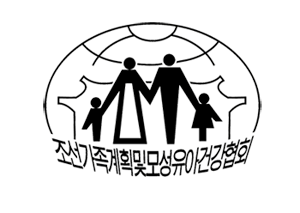

| 31 March 2016
Korean Family Planning & Maternal Child Health Association of DPRK
The Democratic People’s Republic of Korea (DPRK): Family Health Association of Korea (FHAK) formerly Korean Family Planning & Maternal and Child Health Association (KFP&MCHA) was established in 1990. Family Health Association of Korea is actively supported by the government to diversify family planning services and to improve their quality. One of the major challenges is geographic inequality. 80% of the country’s land mass is mountainous, with mining constituting a major industry. Large numbers of people live in this area, working in coal and mineral mines and forest stations. Fertility rates are much higher than in large urban areas, the contraceptive prevalence rate is much lower, and the number of trained family planning advisers is limited. FHAK has targeted these people with reproductive healthcare and information, education and communication (IEC) programmes. Contraceptive prevalence has increased, and the method mix has shifted significantly from IUD to pills, condoms and sterilization. In 2010, FHAKdelivered 538,000 condoms and 138,000 sexual and reproductive health services through 17 service points, including 9 permanent clinics and 8 mobile facilities. The Democratic People’s Republic of Korea (DPRK): Family Health Association of Korea (FHAK) is actively supported by the government to diversify family planning services and to improve their quality. One of the major challenges is geographic inequality. 80% of the country’s land mass is mountainous, with mining constituting a major industry. Large numbers of people live in this area, working in coal and mineral mines and forest stations. Fertility rates are much higher than in large urban areas, the contraceptive prevalence rate is much lower, and the number of trained family planning advisers is limited. FHAK has targeted these people with reproductive healthcare and information, education and communication (IEC) programmes. Contraceptive prevalence has increased, and the method mix has shifted significantly from IUD to pills, condoms and sterilization. In 2010, FHAK delivered 538,000 condoms and 138,000 sexual and reproductive health services through 17 service points, including 9 permanent clinics and 8 mobile facilities.

| 31 March 2016
Fianakaviana Sambatra - Madagascar Association
Relative to much of Africa, Madagascar has high levels of contraceptive use, but high birth rates coupled with endemic poverty and limited government-led sexual and reproductive health (SRH) provision mean that child mortality and maternal death figures are high. Fianakaviana Sambatra (FISA) has been fighting since 1967 to improve the nation’s SRH through advocacy, education and direct service provision. Currently, it runs 67 service points, including: 11 permanent clinics, 3 mobile units and 12 community-based services (CBSs), across 6 of the country’s regions. FISA works with 5 associated clinics and 29 private practitioners. FISA has 70 full-time staff, 184 peer educators, and a youth action movement made up of 42 members. FISA delivers a wide range of services: family planning, prevention and management of HIV and AIDS and the provision and dissemination of comprehensive SRH materials. FISA has used its on-the-ground experience to advise government on national SRH policy. It has partnered with the Ministry of Health, Family Planning and Social Protection, and the Ministry of Youth to advocate for a concerted approach to resolving the critical SRH issues currently facing the country. At the same time, it works with non-governmental organizations (NGOs) such as Marie Stopes International, and the ASSONG coalition of NGOs. FISA receives financial support from UNFPA, the Big Lottery Fund, Amélioration de la Qualité De Services, the EU and IPPF’s Japan Trust Fund. It’s also closely connected to other organizations promoting SRH rights across the country and the region.







